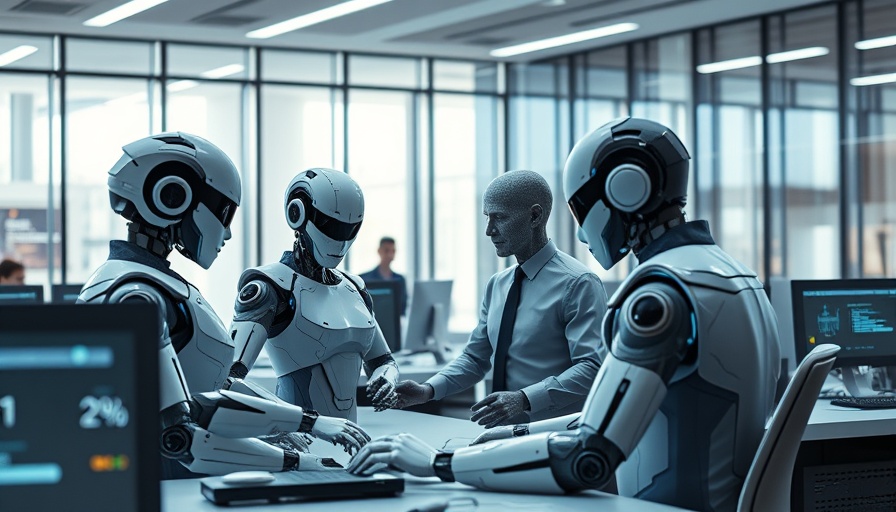
Mediclinic’s Strategic Shift: A Closer Look
In a significant move that impacts both employees and the health care landscape, Mediclinic International has announced a freeze on hiring and plans to cut jobs. This drastic decision is part of a broader initiative to streamline operations and implement artificial intelligence (AI) technologies with an ambitious goal of achieving R2 billion in savings.
Understanding the AI Impact on Employment
As the healthcare industry increasingly turns toward technological solutions, it's vital to understand the role AI is playing. The integration of AI is intended to enhance efficiency, streamline processes, and reduce costs; however, it raises important questions regarding job security. The fear of AI job cuts has rippled through various sectors, alarming employees who worry about the future of their positions.
A Community Response to Change
For many workers, this halt in hiring and impending layoffs comes as a shock. Personal stories are emerging from employees who have dedicated years to their careers at Mediclinic. One nurse shared, "I joined Mediclinic because I believed in their mission to provide quality care. Now, I feel uncertain about what the future holds." These sentiments echo throughout the community as individuals grapple with the implications of these changes.
Exploring Future Trends in Healthcare Employment
Mediclinic is not alone in this trend; other companies in the healthcare sector are also reconsidering their staffing strategies in light of advancements in technology. Predictions suggest we may see a shift in the types of roles available, with demand increasing for tech-savvy professionals who can manage AI-driven tools. As the industry evolves, there will be opportunities for workers to upskill, creating new pathways in a landscape dominated by digital innovation.
The Importance of Adaptation and Resilience
In times of change, resilience becomes a critical asset for workers. Investing in education and training for new technologies can empower individuals to navigate the shifting employment landscape. Community programs aimed at providing resources for career development can play a pivotal role in helping local workers adapt to these changes.
Challenging the Myths Behind AI and Job Loss
One common misconception is that technology will completely replace human jobs. However, many experts argue that while jobs may change, new opportunities often emerge from technological advancements. Industry leaders emphasize the importance of collaboration between human skill and AI capabilities, suggesting a future where technology supports rather than replaces the workforce.
A Call for Community Support and Dialogue
As Mediclinic and other organizations navigate this transition, support from the community is essential. Local leaders and advocacy groups can foster open discussions about the impact of AI on the workforce, ensuring that employees feel heard and included in the conversation about their future. Engaging in this dialogue can help foster a shared understanding and drive collective action towards solutions that benefit both workers and the healthcare system.
As we reflect on these changes, it’s crucial for all of us in the community to stay informed and proactive. Seeking out resources, participating in community programs, and engaging in conversations about the future of work can make a significant difference in how we adapt to ongoing transformation in our workplaces.
 Add Row
Add Row  Add
Add 




 Add Row
Add Row  Add
Add 

Write A Comment